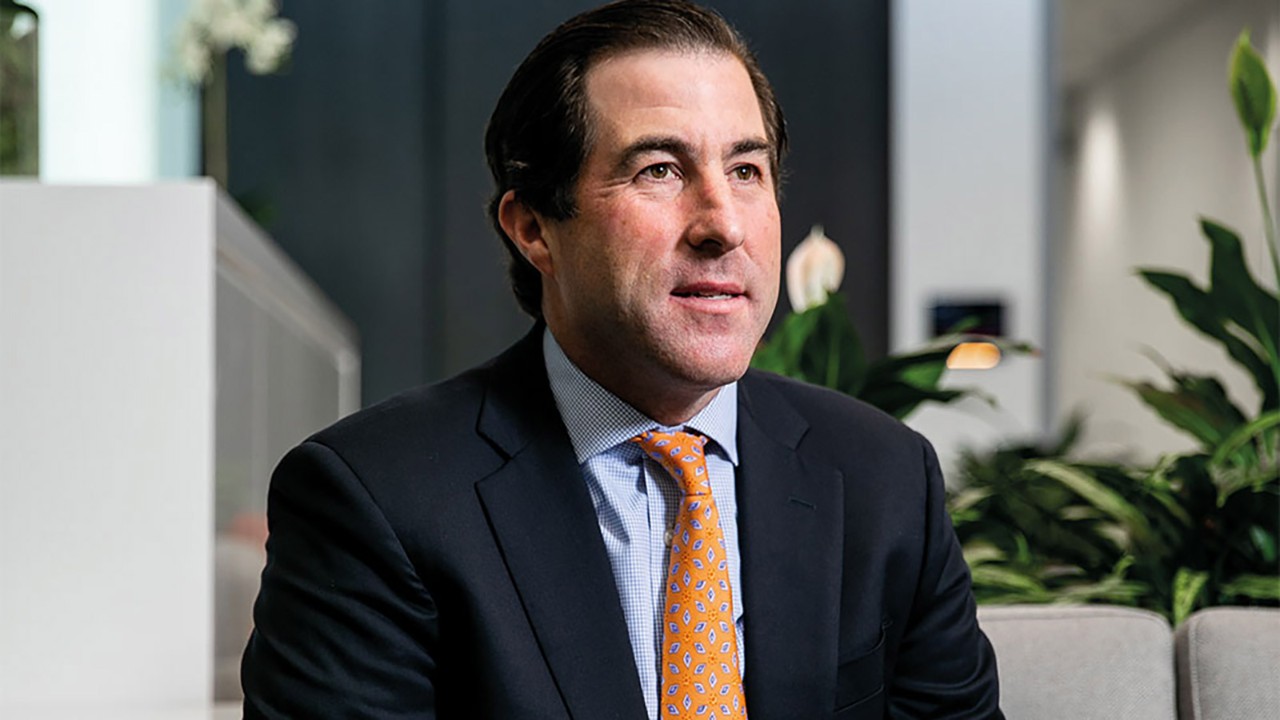
Two years into his term as chair of the International Audit and Assurance Standards Board (IAASB), Tom Seidenstein is focusing on future developments, not least the creation of a standard covering less complex entities.
As is widely recognised, auditing standards have evolved to mirror an increasingly complex business world, and yet there remain many businesses and other organisations that arguably do not require such a detailed examination. But, as Seidenstein is keen to point out, this is not about lowering the quality of audit for less complex businesses; it is about auditing in a smarter way.
‘We are very much taking the public interest lens on fraud and going concern’
In July, the IAASB published an exposure draft of its new, standalone standard for audits of financial statements of less complex entities. The board is now reviewing comments in real time ahead of the end of the consultation period on 31 January 2022.
‘It is still early days,’ Seidenstein says. ‘We are getting feedback from a wide range of stakeholders, so it would be too early to pre-judge where people are coming out. There is a diversity of viewpoints, and not everyone was supportive of a separate standard in the beginning.’
Issues such as whether the standard should exclude group audits are still up for debate. ‘Group audits tend to be more complex and require a higher level of public interest, so we needed to draw a line,’ he explains. ‘We knew that would be an area of contention, which is why we have asked a question about it.
Several projects came to fruition during the pandemic – three audit quality standards and ISA 600 (Revised) on group audits
High-quality standard
‘We have also looked at whether there is enough difference between existing ISAs and the ISA for LCEs [less complex entities]. This is not meant to be a standard that provides lower quality; it is meant to be a high-quality standard that will lead to a reasonable assurance opinion. And we are unapologetic about that; getting anything less than that would fail to meet the expectations of the broader public interest.’
By his own admission, Tom Seidenstein’s first two years as chair of the IAASB have not been what he or anyone else would have expected. But with the return of some semblance of stability in the global economy, Seidenstein is looking forward to an equally stable period of standard setting.
Not that the last two years have been quiet – far from it in fact. Seidenstein lists several projects that came to fruition during the pandemic. These included the audit quality management standards (ISQMs 1 and 2, and ISA 220 (Revised)), and the soon-to-be approved ISA 600 (Revised) on group audits. But the next two years are likely to be even busier.
Auditor responsibilities
Fraud and going concern have been important points of focus for the IAASB – these two areas formed the backbone of a recent report by ACCA on closing the expectation gaps faced by the audit profession.
‘We are committed to producing robust approaches on both fraud and going concern,’ says Seidenstein. ‘We are very much taking the public interest lens on this. This does not mean the existing auditing standards are fundamentally broken, but they could benefit from enhancements that clarify auditor responsibilities and link much better to the whole risk-based system of auditing.’
‘ISQMs are a step change in terms of rigour, robustness and management of quality control’
Seidenstein suggests that standards can be modernised to include the greater use of technology and reinforced to use the appropriate level of professional scepticism and satisfy the need for enhanced transparency. A project on fraud is due to be launched in December, with a further project on going concern in the following March.
‘We need to be clear about what the positive obligations of an auditor should be, within our current roles and responsibilities,’ he says. ‘We should be able to positively articulate our roles within the risks of misstatement in relation to fraud and explain how that relates to all the other requirements in our audit standards.’
Improving quality
Audit quality is never far from the standard setter’s mind. The International Standards on Quality Management (ISQMs) launched last year have raised the bar for many accountancy firms and Seidenstein recognises the effort needed to implement them.
‘We have heard that the scale of work required to put this in place is significant. And it should be significant because we believe it is a step change in terms of rigour, robustness and management of quality control, because it focuses on accountability, tone at the top and setting responsibilities within a firm.’
‘We want to understand the implications of disruptive technologies for the audit process’
The ISQMs require an evolving process of identifying and mitigating risk, and continuous improvement. ‘There is no doubt that this is a big effort, but there is a sense that people are rolling up their sleeves to get this done,’ he says.
Seidenstein adds that the board has heard that in some emerging markets, particularly at the SMP level and in areas that have been significantly affected by the Covid-19 pandemic, there have been calls to push back implementation dates. However, he and his board are holding firm on these dates.
‘There is a strong demand for these standards, and it really is an opportunity for the profession to show how it serves the public interest by putting quality at the centre of all it does,’ he says.
He also acknowledges the efforts that the Public Company Accounting Oversight Board (PCAOB) is making on quality management and hopes the desire to avoid two systems of quality management are recognised.
Future focus
Looking forward, Seidenstein is keen to promote the IAASB’s project on complexity, understandability, scalability and proportionality in standard setting, which is running in parallel with the LCE project. At the same time, he acknowledges the impact of technology, which can lead to further disruption and more complexity.
‘We want to understand the implications of disruptive technologies for the audit process, and how this might change the types of standards that are set, and how we set them,’ he says. With this in mind, the board is considering the creation of a digital advisory group, but one that will not be drawn from the ‘usual suspects’ in the auditing profession.
And then there is the role of auditors beyond the financial statements – is the current umbrella International Standard on Assurance Engagements (ISAE 3000), which deals with non-financial audits, enough or should it be extended?
‘We are in listening mode and are open minded,’ Seidenstein says. ‘We need engagement with a global community – we need to make it easier to participate.’
Further information
Read about ACCA’s call for a focus on fraud in audit reform


